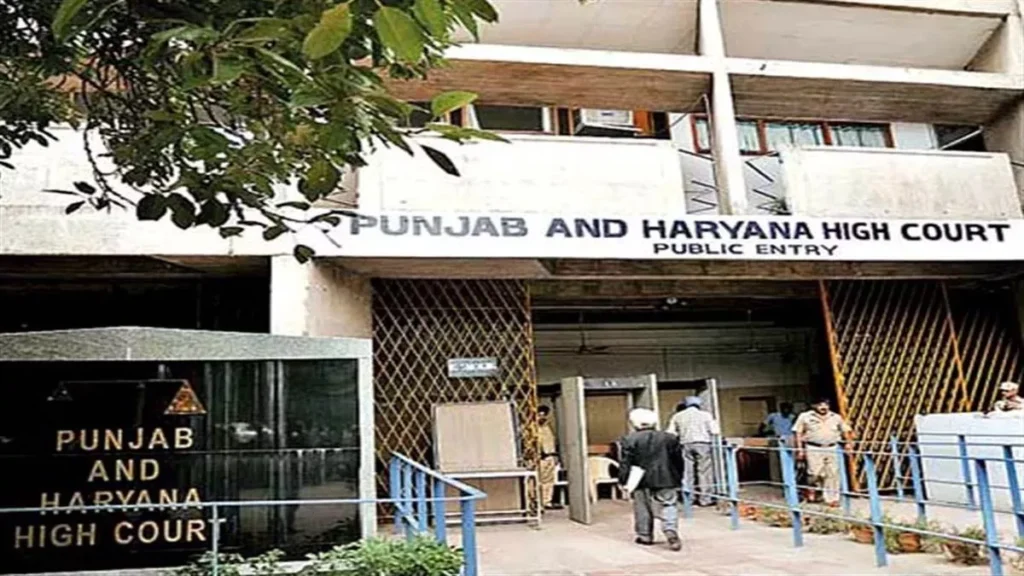The Punjab and Haryana High Court stated that the court’s authority under Section 34 of the Arbitration and Conciliation Act is quite limited, and there is little room for interference.

The Punjab and Haryana High Court confirmed an Arbitral Award related to a land dispute and emphasized that the Court’s authority under Section 34 of the Arbitration & Conciliation Act, 1996 is limited, while the Appellate Court’s authority under Section 37 is even more restricted. The High Court reviewed an Appeal against the Special Commercial Court’s decision in Gurugram, which dismissed the appellant’s petition under Section 34 of the Arbitration and Conciliation Act, 1996. The Division Bench, consisting of Justice Arun Palli and Justice Vikram Aggarwal, stated, “The Special Commercial Court, Gurugram correctly dismissed the petition based on the law.”
Advocate Vipul Sharma represented the Appellant, and Senior Advocate Aashish Chopra represented the Respondent. The case involved a development agreement made in 2005 between the appellant and the landowners for building a Commercial/IT Complex. According to the agreement, the appellant was to develop the land at its own expense, and a refundable security deposit of Rs. 50,00,000 was paid to the landowners, which was to be returned within 15 days after the occupation certificate was issued. The contract specified that completing the project on time was crucial, with a six-year period set for its completion from the agreement’s signing.In 2008, part of the land was marked under Section 4 of the Land Acquisition Act, 1894, and an award was announced. Later, the respondents sent a legal notice to the appellant stating that the agreement was canceled. The appellant invoked the arbitration clause. During the arbitration, the appellant’s claim and the respondents’ counterclaims were both rejected. The appellant was ordered to pay Rs 4,00,000 in costs to the respondents as litigation expenses. Upset by the award, the appellant filed a petition under Section 34, which was denied, leading to the current appeal.
The appellant argued that the Commercial Court dismissed the Section 34 petition on weak grounds and did not understand the issue properly. The respondents argued that a Section 34 petition is not an appeal and can only be challenged on specific limited grounds. The Bench clarified that after a Section 34 petition is resolved, an appeal can be made under Section 37 of the 1996 Act. According to Section 37 (1) (c), an appeal can be made against an order that either sets aside or refuses to set aside an arbitral award under Section 34 of the 1996 Act.
The Bench noted that the Arbitrator thoroughly examined the case and provided detailed findings. The issue regarding the force majeure clause was discussed extensively, but it was pointed out that this clause was not included in the claim petition and was only raised during the arguments. The Bench concluded that this argument lacked merit because only a small portion of the land was involved in the acquisition, which occurred before the agreement was executed. The remaining land was not part of the acquisition at the time the agreement was made or when the claimant applied for the license.
Additionally, the Commercial Court found that there was no evidence presented that could suggest the Arbitrator’s findings were against Indian Public Policy or that any laws were violated. The Court stated that the Arbitrator’s factual findings could not be overturned simply because a different opinion might exist. Therefore, the Bench upheld the Commercial Court’s decision in Gurugram to reject the petition and dismissed the appeal.
Cause Title: Active Promoters Private Limited v. Desh Raj and Others [Neutral Citation- 2024:PHHC:149676-DB]
Appearance:
Appellant: Advocate Vipul Sharma
Respondent: Senior Advocate Aashish Chopra, with Advocates Rupa Pathania, Gurpreet Randhawa, Nitika Sharma, Advocate









